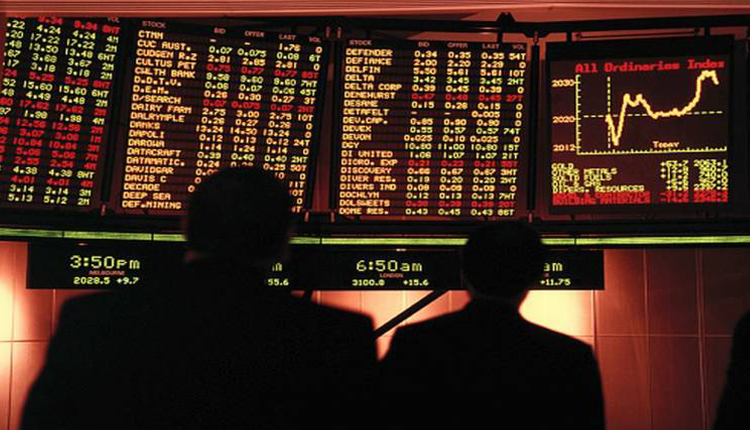Japanese markets traded flat on Thursday after manufacturing activity in the country shrank for a fourth straight month in August.
The benchmark Nikkei 225 was flat, while the Topix index was down 0.1 percent.
Still, manufacturing shares in Japan traded mixed: Komatsu shares rose 0.45 percent, Kawasaki Heavy Industries added 0.89 percent and Mitsubishi Heavy was down 0.08 percent. Electronics manufacturers sold off as shares of Sony dropped 2.19 percent, Renesas Electronics fell 2.35 percent and Fujitsu dropped 1.42 percent.
Rest of Asia trade mixed
South Korea’s Kospi index fell 0.23 percent as major chipmakers Samsung and SK Hynix declined 0.67 percent and 1.85 percent, respectively.
Hong Kong’s Hang Seng index declined 0.87 percent while Australia’s ASX 200 added 0.35 percent.
Mainland Chinese markets traded mostly lower: The Shenzhen component index fell by 0.08 percent, the Shenzhen composite lost 0.04 percent and the Shanghai composite was down by 0.18 percent.
Meanwhile, Singapore’s Straits Times Index added 0.12 percent. The Jakarta Composite fell 0.43 percent ahead of Bank Indonesia’s monetary policy decision due later on Thursday.
“The hot and cold vibes in the equity markets continue with gains in the overnight session effectively reversing the losses recorded the previous day,” Rodrigo Catril, senior foreign exchange strategist at the National Australia Bank, said in an early morning note before markets opened.
Oil prices up
Oil prices gained Thursday during Asian trading hours. U.S. crude were roughly flat at $55.67 a barrel. International benchmark Brent erased its earlier gains to trade 0.12 percent lower at $60.23.
U.S. crude inventories fell by 2.7 million barrels last week, which was more than expected, Reuters reported.
Energy names in Australia rose: Santos shares were up 2.92 percent, Oil Search gained 0.61 percent and Woodside Petroleum added 0.53 percent. But Japan’s Inpex fell 1.23 percent while Japan Petroleum added 1.042 percent.
Modest reaction to Fed minutes
Markets had a relatively modest reaction overnight after the Fed released minutes of its last meeting in July, where the U.S. central bank lowered the benchmark rate by 25 basis points.
In its minutes, Fed officials who voted to lower interest rates three weeks ago agreed that the move shouldn’t be viewed as an indication that there is a “pre-set course” for future cuts.
The summary indicated that policymakers viewed the move as a “mid-cycle adjustment” — an expression that Fed Chair Jerome Powell had used in a news conference afterward. That was said to have contributed to a stock market sell-off following the July 30-31 meeting as market players grew concerned that the Fed might not be as accommodative with policy as anticipated.
Underpinning the meeting minutes was worry among Fed members over future growth prospects as the U.S.-China trade war drags on.
The fight between Beijing and Washington has roiled markets for more than a year, and there have been signs the rafts of additional tariffs from both sides are having real effects on economies around the world.
Randy Kroszner, deputy dean for executive programmes at the University of Chicago Booth School of Business, said as far as possible resolution is concerned, there are two aspects to look at.
“There are things like soybeans and cars, and that’s something you can monitor, you can count, and, so, I could see some closure coming on that,” Kroszner told CNBC’s “Squawk Box.” “But the much bigger picture issues about the system — the approach taken to intellectual property, the defense of that, the requirement for technology transfer — that I don’t see a resolution coming anytime soon.”
Currencies and recession fears
The U.S. dollar last traded at 98.306 against a basket of its peers, topping an earlier high of 98.301.
Among currency pairs, the Japanese yen traded at 106.42 against the dollar, stronger than a previous level around 106.64 while the Australian dollar changed hands at $0.6759.
“The main reason why the (dollar) strengthened and US treasury yields lifted was because the minutes did not strengthen the chances of further rate cuts this year. The Fed instead eased back slightly the probability of further cuts,” Richard Grace, chief currency strategist and head of international economics at the Commonwealth Bank of Australia, wrote in a morning note. Bond yields move inversely to prices.
Still, fears of recession lingered in the market as the spread between the yield on the 10-year U.S. Treasury note and that of the 2-year note turned negative for the second time in one week.
The inverted bond-market spread is seen by many veteran traders as an important recession omen, though the timing on the eventual downturn is less predictable.
Source: CNBC
